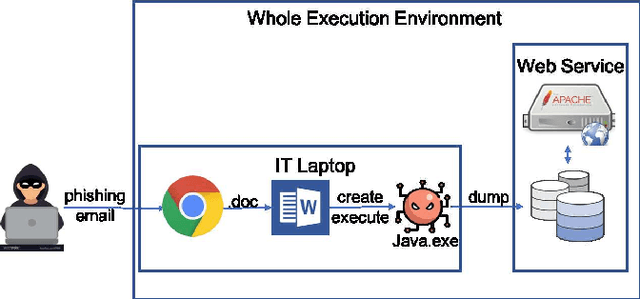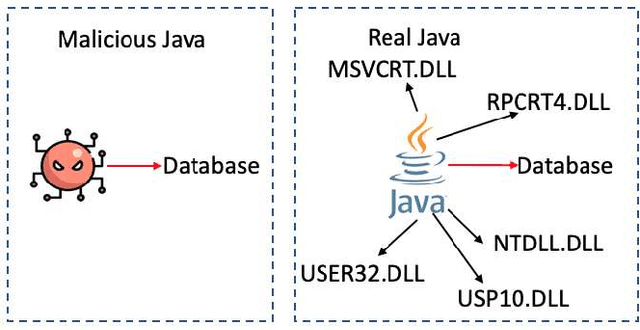Heterogeneous Graph Matching Networks
Paper and Code
Oct 17, 2019



Information systems have widely been the target of malware attacks. Traditional signature-based malicious program detection algorithms can only detect known malware and are prone to evasion techniques such as binary obfuscation, while behavior-based approaches highly rely on the malware training samples and incur prohibitively high training cost. To address the limitations of existing techniques, we propose MatchGNet, a heterogeneous Graph Matching Network model to learn the graph representation and similarity metric simultaneously based on the invariant graph modeling of the program's execution behaviors. We conduct a systematic evaluation of our model and show that it is accurate in detecting malicious program behavior and can help detect malware attacks with less false positives. MatchGNet outperforms the state-of-the-art algorithms in malware detection by generating 50% less false positives while keeping zero false negatives.
 Add to Chrome
Add to Chrome Add to Firefox
Add to Firefox Add to Edge
Add to Edge